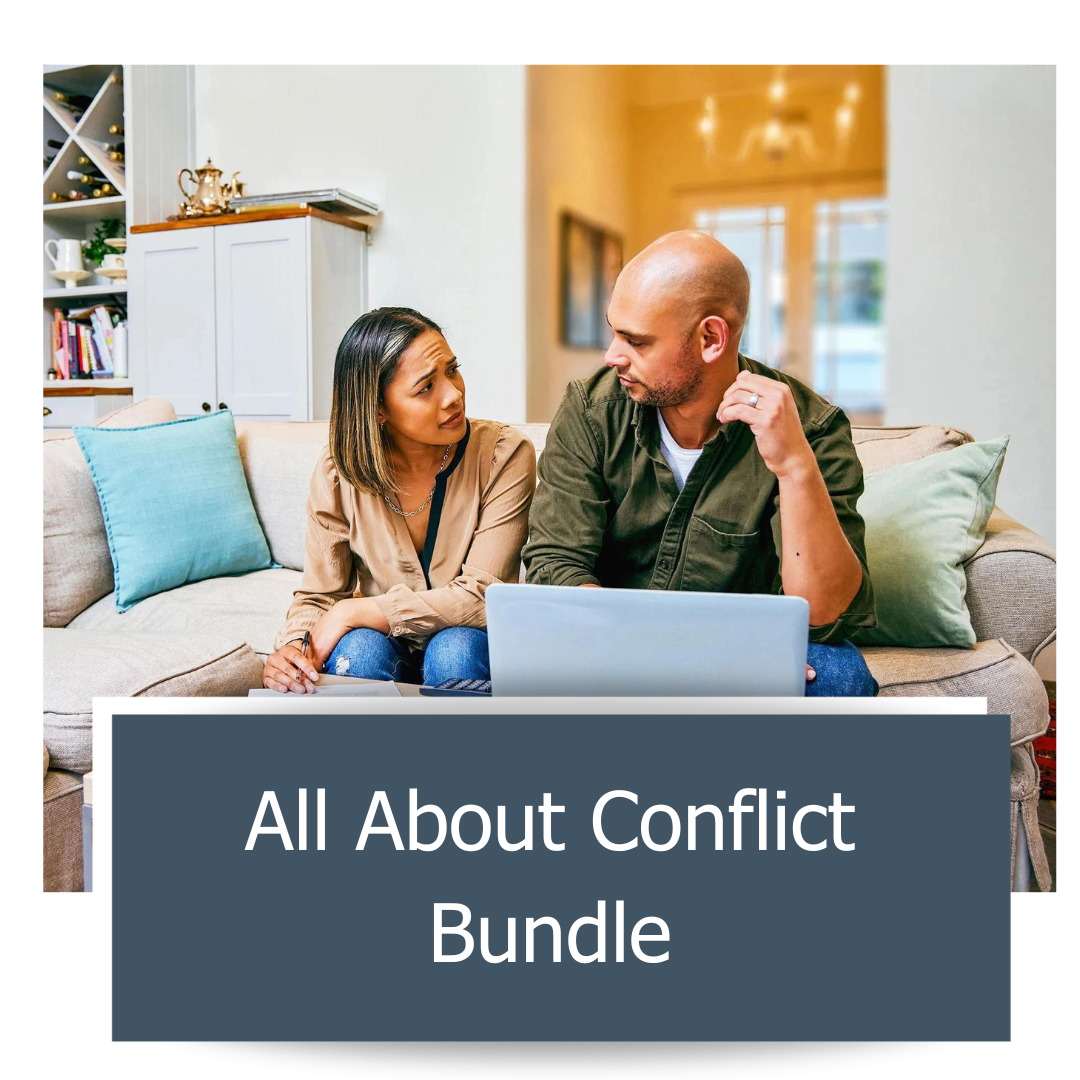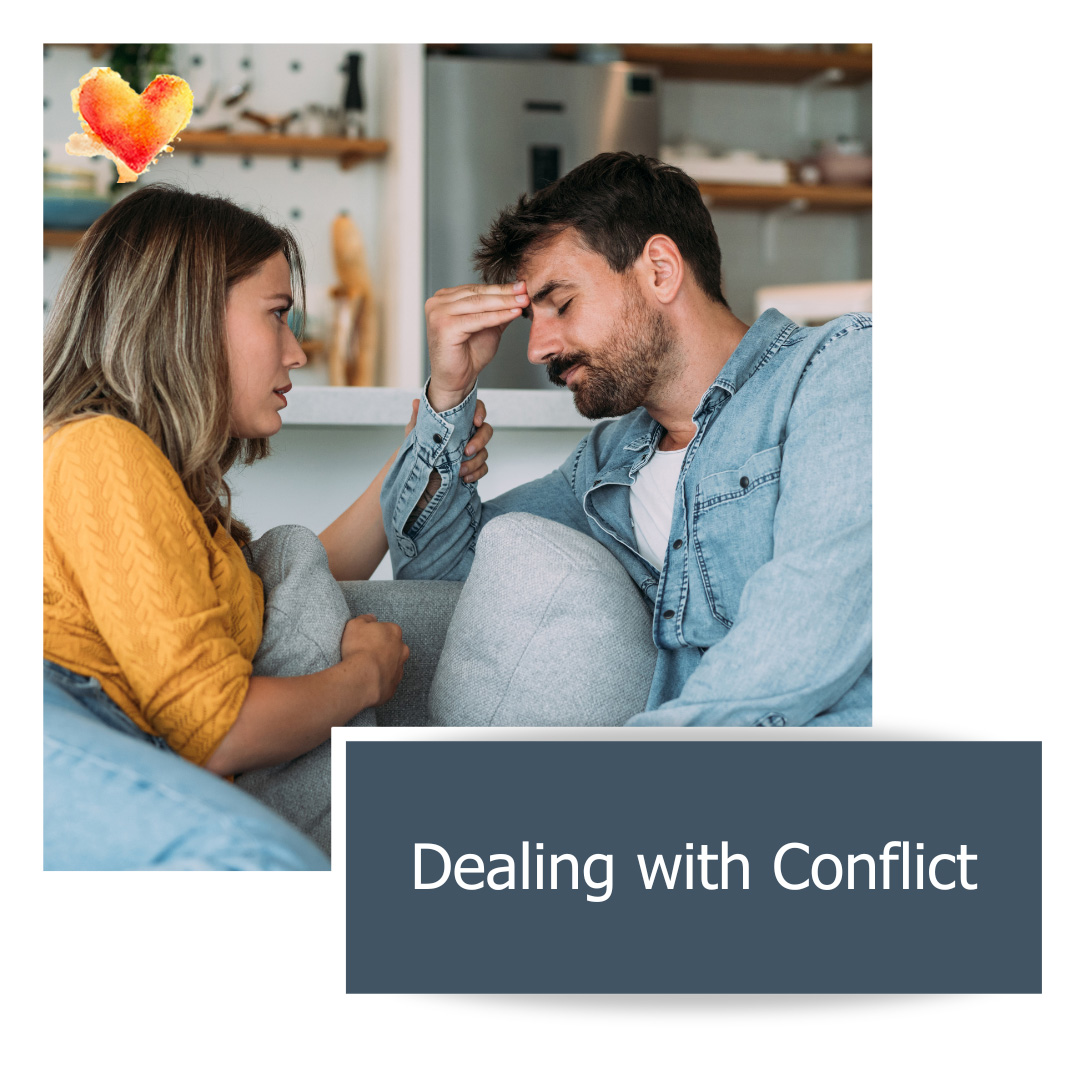Do you and your partner struggle with flooding and conflict avoidance?
You might think that by avoiding potential conflict that you have a good relationship. It sounds good to be the couple that never fights but couples who tend to avoid conflict often still find themselves in counseling. Unfortunately, there is no such thing as truly avoiding conflict. The problem or hurt feelings remain they just don’t get communicated or resolved. Unresolved conflict can lead to resentment and a lack of connection. It’s hard to feel heard when you don’t let your partner know how you are feeling.
Here are some examples of what conflict avoidance looks like:
- Your partner says something hurtful but you don’t want to make a big deal out of it so you don’t tell them.
- Your partner notices a dent on your car and gets it fixed without telling you because they didn’t want to argue over what happened.
- You didn’t pay a bill on time and your partner doesn’t tell you how frustrated they feel about the late fee.
- Your partner didn’t do anything special for your anniversary and you feel sad. You decide not to say anything because it isn’t worth a fight.
- You don’t agree with how your partner disciplined your child but don’t say anything so you won’t spend the evening disagreeing.
What causes the avoidance?
A lot of people will say they are uncomfortable with conflict. It’s not enjoyable for anyone and maybe in the past, you have felt like conflict gets you nowhere in your relationship. John Gottman’s research did find that ⅔ of problems are unsolvable. What that means is we may have a lot of “nothing” fights where there isn’t something we can solve. What needs to be focused on are the problems we can solve but it doesn’t hurt to communicate about unsolvable issues.
A reason I see often for conflict avoidance is one or both partners experience flooding during or leading up to conflict and don’t know how to manage it properly. Flooding is our body’s alarm system for perceived threats. When experiencing flooding the “fight, flight, or freeze” response occurs. For some people, this amps up conflict and they lean towards fight but for many others, the flight or freeze response happens. For flight, you might think “I better shut my mouth so I don’t make things worse” or physically walk away. Some people may experience dissociation, the freeze response. This is where your mind disconnects as a way to keep you safe. A person will shut down and maybe even stonewall their partner.
With avoidance, you might be able to distract yourself away from the potential conflict for a while but without resolving things it can come back up next time you feel a similar way. It can be common for an explosion to happen after too many things get built up. This type of conflict can be emotionally charged and when so many built-up things are addressed it’s hard to make progress repairing anything. Luckily there is a way to manage flooding that will help you be ready to tackle conflict as it happens.
Choose a new path
Here’s how to manage flooding and redirect from conflict avoidance:
- Take a time-out. Let your partner know you need to take a break and self-soothe.
- Set a time to come back to talk. Try taking 20-30 minutes and then come back to let your
partner know if you are ready to talk. - Find something self-soothing to do. Try meditation, exercise, playing a game, or reading.
Don’t focus on the conflict as it can make flooding worse. - Share your feelings and needs. When you come back together let your partner know
how you feel and what you may need. “I was feeling hurt when we talked about skipping
our dinner plans. I need to spend quality time with you one-on-one each week.” - It’s important to come back together after taking the time out to talk through the disagreement.
Try not to let too much time pass as that will bring you right back into the territory of flooding and conflict avoidance. If things get heated or the flooding returns feel free to call another time out. Self-soothing takes practice and repetition. Once you’ve done it a few times it becomes easier to manage. If you still find you have trouble talking through conflict with your partner a Gottman trained therapist can help you build the skills to communicate more effectively together.










